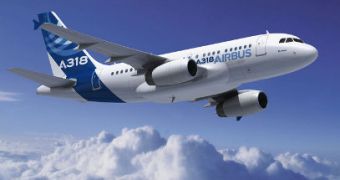Leading aircraft manufacturer Airbus recently announced plans to test the possibility of reducing the fuel consumption of an A320 by as much as 15%.
Their plan is to have a fuel-cell system installed into the aircraft, the end goal being that of powering the A320's lights, environmental controls and entertainment system using energy taken from this environmentally-friendly source.
As well as this, said fuel cells will be responsible for meeting the energy demands of the aircraft's avionics and hydraulics.
Last but not least, the A320's fuel tanks will be kept safe using this secondary power source, meaning that the system which keeps oxygen concentrations at a low level around the fuel tanks will also get its energy from the fuel cells.
It comes as no surprise that, in order to ensure the success of this project, various changes will have to be done to the A320 taken into consideration for this experiment.
More precisely, having hydrogen fuel cells on board will translate into the need to implement new safety standards.
On the other hand, it is expected that the aircraft's overall weight will be somewhat diminished, as the fuel cell system is not as heavy as the auxiliary power system the aircraft currently has installed in its tail in order to deal with the aforementioned non-propulsion systems.
Technology Review reports that Jeff Rolf, one of the engineers working on this project, explains how, “[The fuel cell] breathes air, so it will displace oxygen and generate water. This means the system could reduce the amount of water the aircraft needs to carry at takeoff; on some large airliners that water can weigh as much as 3,000 pounds.”
He further adds that, “These savings will eventually be combined with electric-powered wheels for taxiing. In the commercial implementation, we are hoping to achieve north of 15 percent overall fuel savings.”
Apparently, the first test flights for this environmentally friendly A320 will take place as early as 2015.

 14 DAY TRIAL //
14 DAY TRIAL //